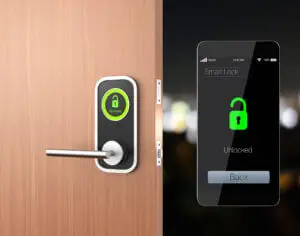As a professional lock master, you know how security is an essential aspect of any home or business. With the advancement of technology, we’ve seen significant improvements to traditional locks and keys.
The rise in popularity of smart locks has been remarkable, with many people looking towards them as an effective means for their home and business safety.
There are different types of smart locks on the market that come with varying features, such as Wi-Fi, Bluetooth, and NFC (Near Field Communication). In this article, we have a few smart locks and will explore these options to help you understand which type may be right for your needs.
What is a Smart Lock?
Before diving into the types of smart locks available today, it’s important to understand what exactly a smart door lock or lock does. In simple terms, a smart lock replaces traditional keyed entries in existing deadbolt or doorknobs. These devices grant access using a smartphone app through wireless communication rather than needing physical keys.
Smart locks are designed to make life easier while still maintaining security within your property. They offer benefits like remote access control when out of town or organizing service personnel while away from home/biz premises via text message without having to leave keys at the doorstep.
Benefits Of A Smart Lock
Smart lock systems have gained popularity because they offer several benefits compared to traditional mechanical wiring locking systems:
Enhanced Security
Unlike conventional physical key-and-lock methods that anyone can copy with minimal equipment requirements, electronic-based locking mechanisms require skill and knowledge from professionals who specialize in various technologies like me-let us keep these crooks locked out.
Increased Convenience
Conventional mechanical legible passwords make unlocking this device easy-peasy. Your mobile phone becomes an all-in-one passport for accessing multiple areas within designated zones around property perimeters via NFC touchpad readers.
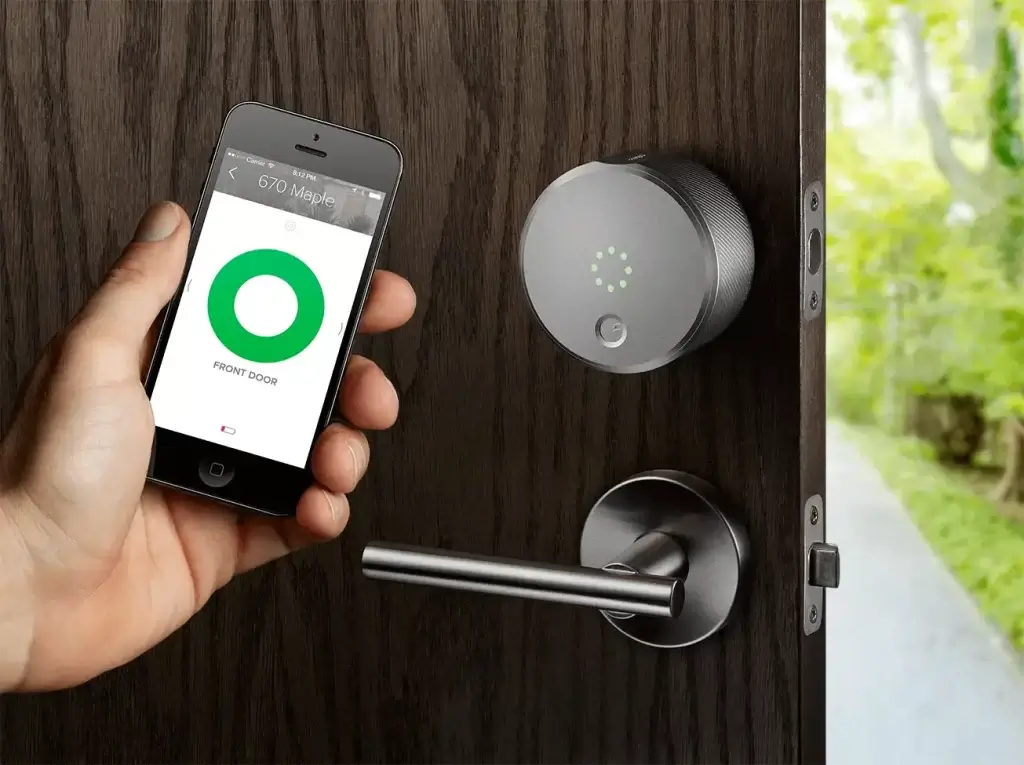
Keyless operation
No more fumbling around trying to find the key once again, even if misplaced. Simply use data extracts plucked directly off “smart” programming files that have already been assigned authorization privileges.
Enhanced Access Control Features
Most smart locks have advanced authentication options, including facial recognition and fingerprint identification. Customizable key-sharing settings that provide specific access permissions to individual users or groups of people according to their desired authorization levels.
Easy Integration with Other Home Security Systems
Smart locks can integrate seamlessly with other smart home devices, such as alarms, security cameras, and surveillance systems which create a synergistic effect that enhances overall safety while also providing convenience for monitoring entrances and exits in real time.
Types of Smart Locks
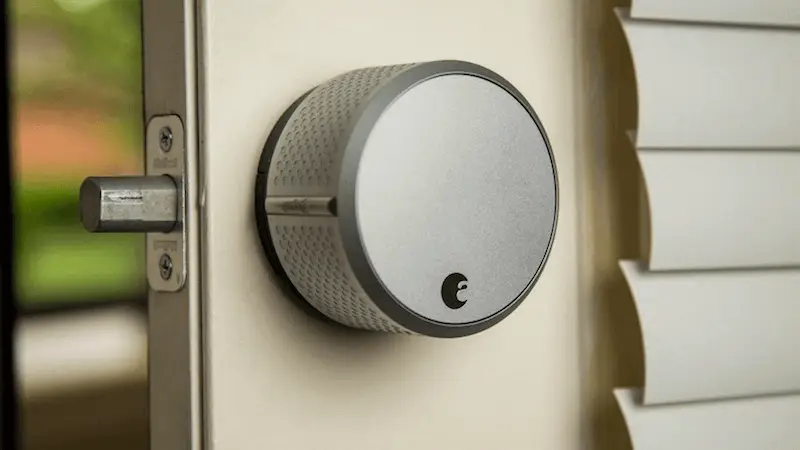
Let’s take a closer look at the most prevalent types of smart locks and the features they offer with the best smart lock buying guide:
Wi-Fi Smart Locks:
Wi-Fi-enabled door locking systems are designed to help you remotely control your home’s or property access via your smartphone device–from anywhere you have an internet connection. These are the best smart locks, such as the August smart lock.
These intelligent products provide users with added convenience and security features like locking/unlocking automation, keyless entry through digital codes, event notifications in real-time while out of town/vacation mode set up/entry logs, and much more.
Pros:
- Lock Remotely
- Allows sharing of digital keys to visitors or service personnel without needing to physically hand over a key
- Integration with other smart home devices, such as cameras and alarms, for enhanced security
- Real-time event notifications available on the go
Cons
- Requires stable Wi-Fi connection for optimal performance, which can be problematic in areas with poor connectivity.
- Possible security vulnerabilities through hacking attempts through weaker passwords or unsecured networks.
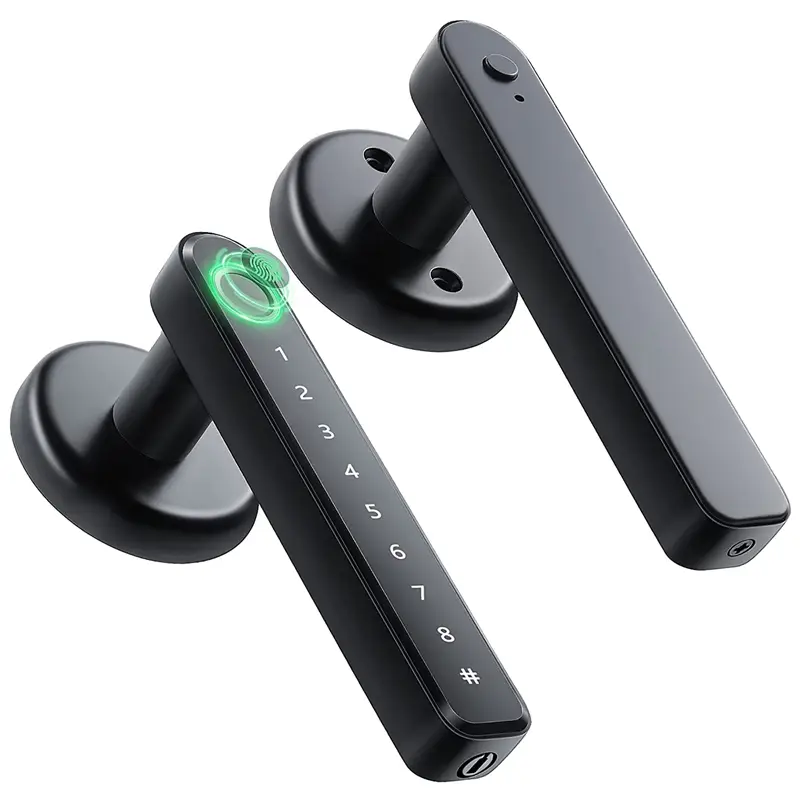
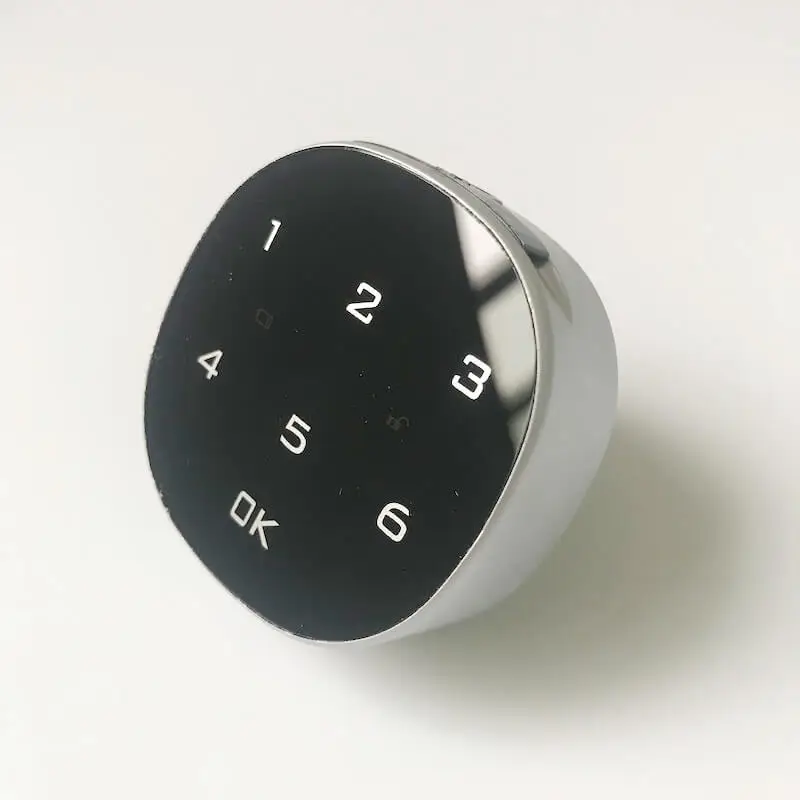
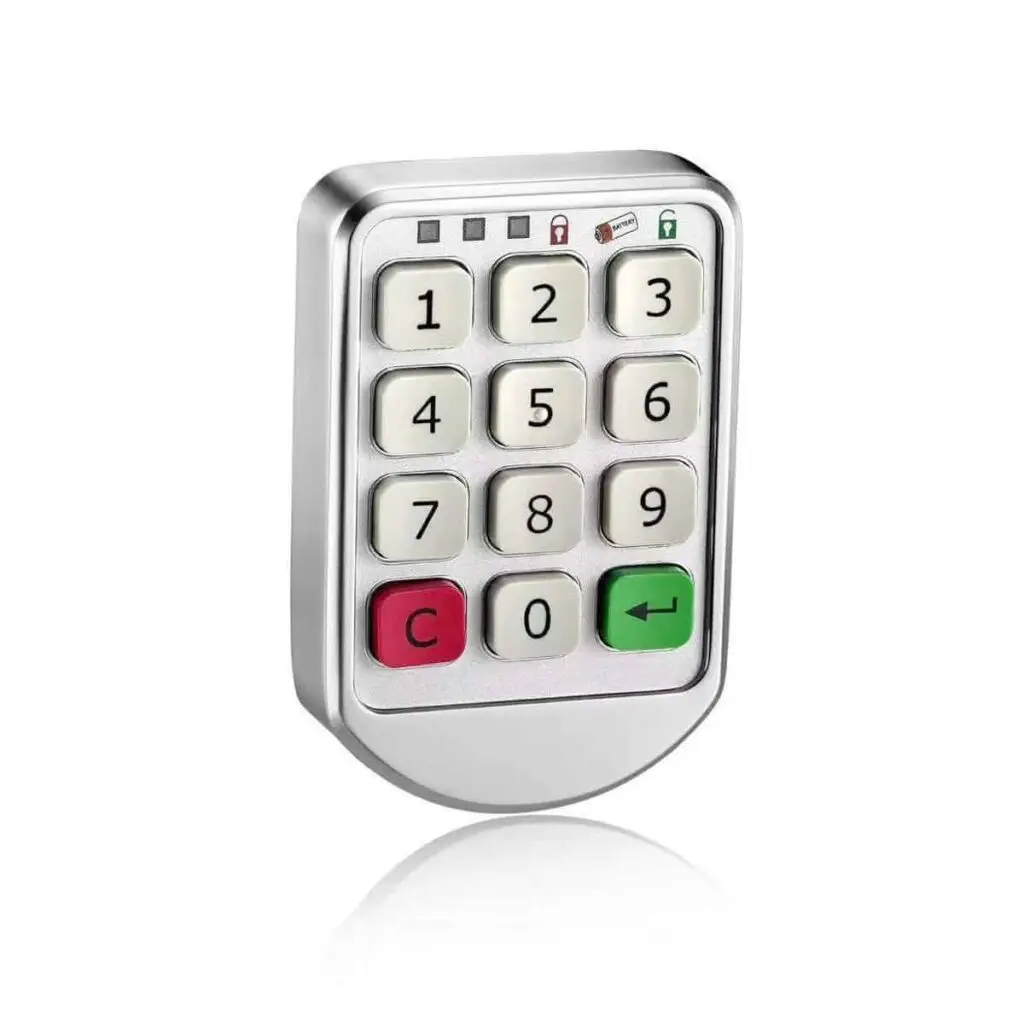
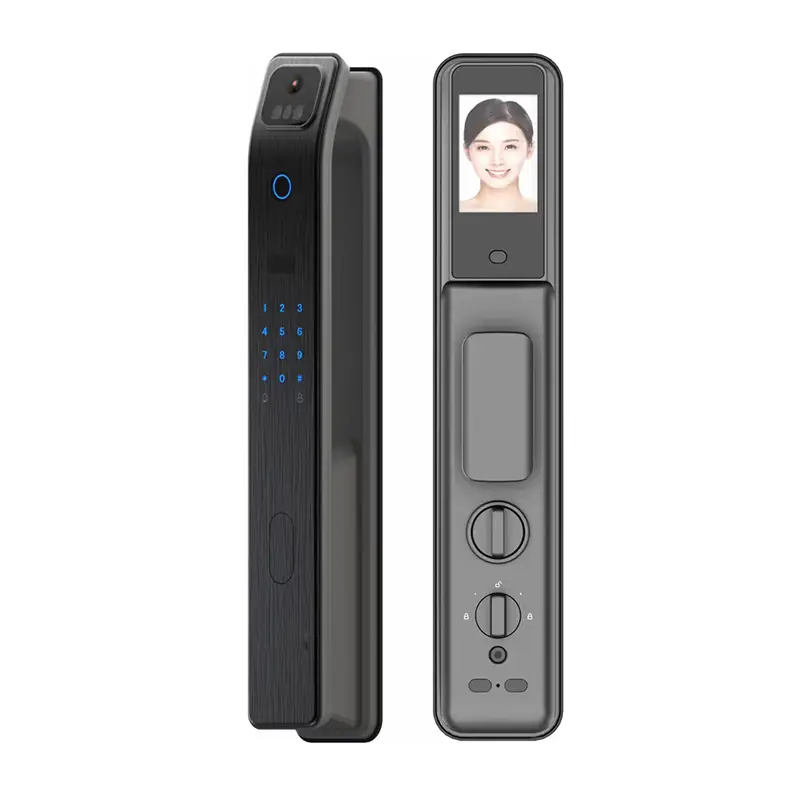
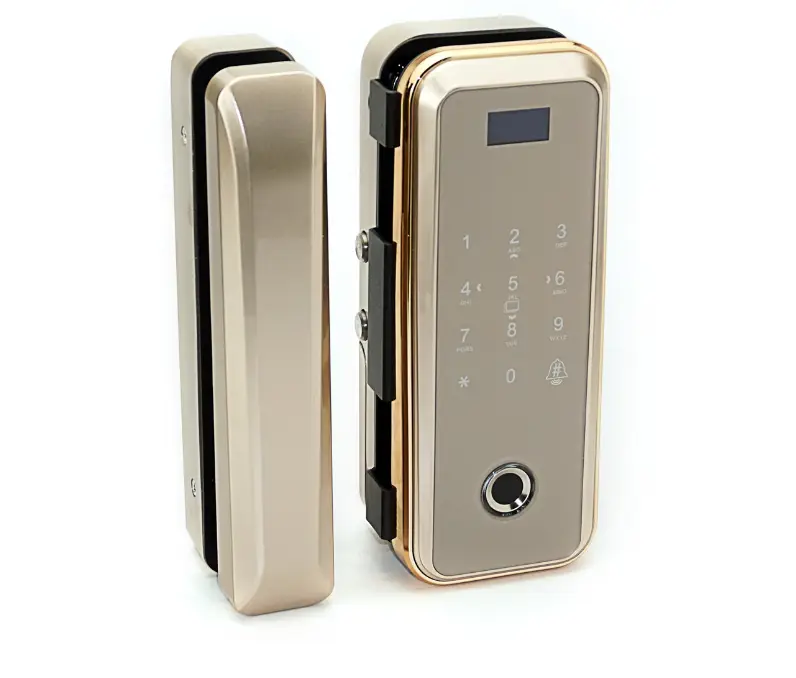
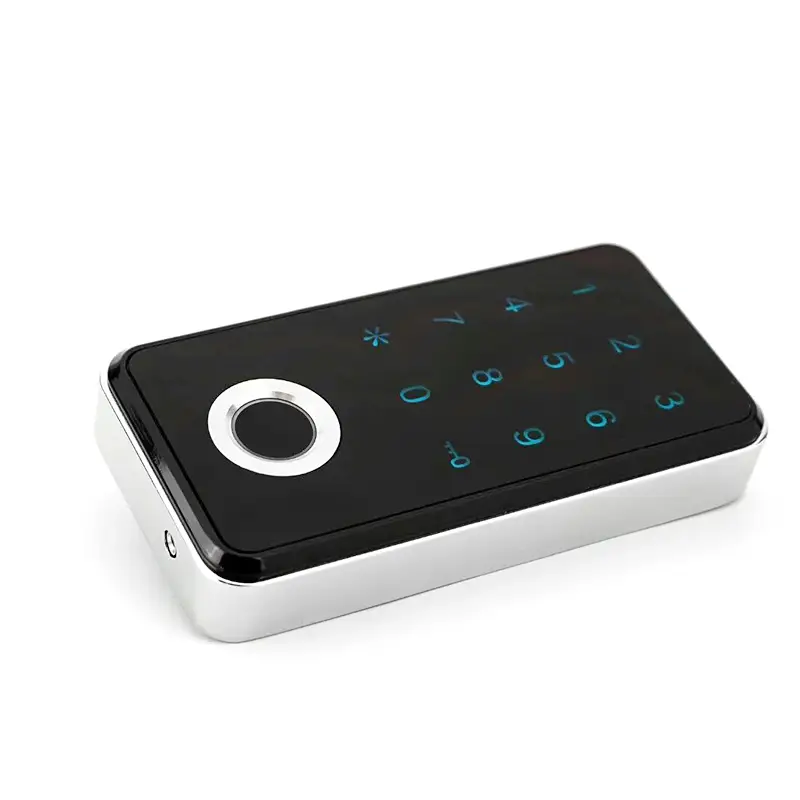
Bluetooth Smart Locks
Bluetooth smart locks operate using wireless communication between the lock and your smartphone device within a limited range. Unlike Wi-Fi-based devices, Bluetooth-based locks do not have remote access capabilities but are designed for use within smaller scales like homes, apartments, or small offices.
These types of locks let you unlock/lock doors automatically when the designated phone is in close proximity (usually a few feet away from the door), making it the ideal choice for people who need hands-free entry while carrying groceries or coming in with their hands full.
Pros
- Hands-free locking/unlocking operation via smartphones within range.
- Can’t be hacked remotely since they don’t have extended wireless communication ranges.
Cons
- Short-range limitations that may hinder easy operations on multiple floors may require additional peripherals like repeaters for better coverage;
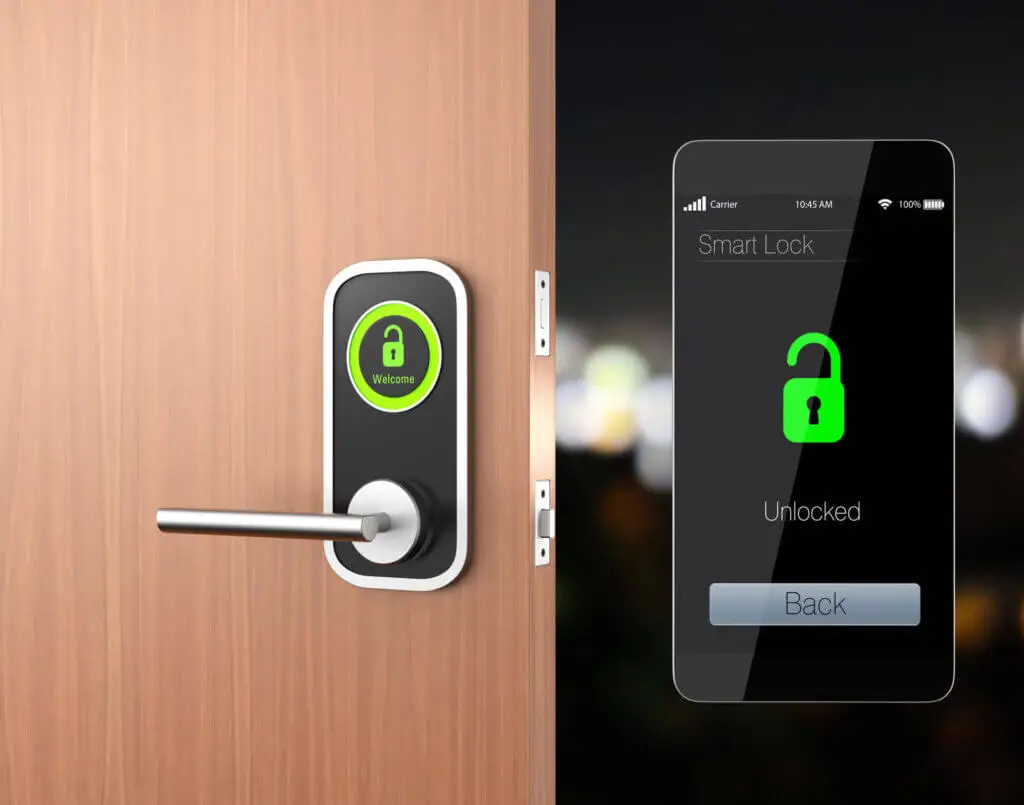
NFC Smart Locks
NFC stands for Near Field Communication, which means this type of smart lock employs radio-frequency technology to communicate wirelessly over short distances.
This tech is relatively new compared to its peers, offering options at a lower price point than competing systems, plus straightforward mobile compatibility features compatible with not just all iOS and Android operating systems.
They are also compatible with also BlackBerry OS & Windows phones too, among other lesser-used technologies, nonetheless useful/customizable by expert system team leaders across small-to-large organizations alike.
NFC-enabled front door devices work by translating digital codes into physical movements/opening mechanisms using electronic actuators installed on the lock or door. NFC smart locks offer a new range of secure options for access control with unparalleled user convenience.
Pros
- High-end security
- Easy installation even if you’re a novice DIYer
- Lower price point
Cons
- Limited compatibility with mobile devices since users need phones having pre-loaded software able to read NFC-enabled tags.
Conclusion
The type of smart lock that is best suited to your needs ultimately depends on individual preferences and intended use. While Wi-Fi locks have more extensive capabilities, like remote unlock and lock via the internet, Bluetooth locks are designed for a shorter range of operation but without the need for network connectivity.
On the other hand, many smart locks offer high security due to their unique encryption features, such as auto lock, that prevent hacking attempts. Ultimately, whichever option you choose must provide adequate protection while still meeting the convenience needs or requirements of smart locks cost.
Ensure that in selecting your preferred type of smart lock system, it should cover essential factors such as ease of installation and safe operation provided at all times. If unsure about which system to opt for after careful consideration, consult with a professional locksmith who can assist you every step of the way.




